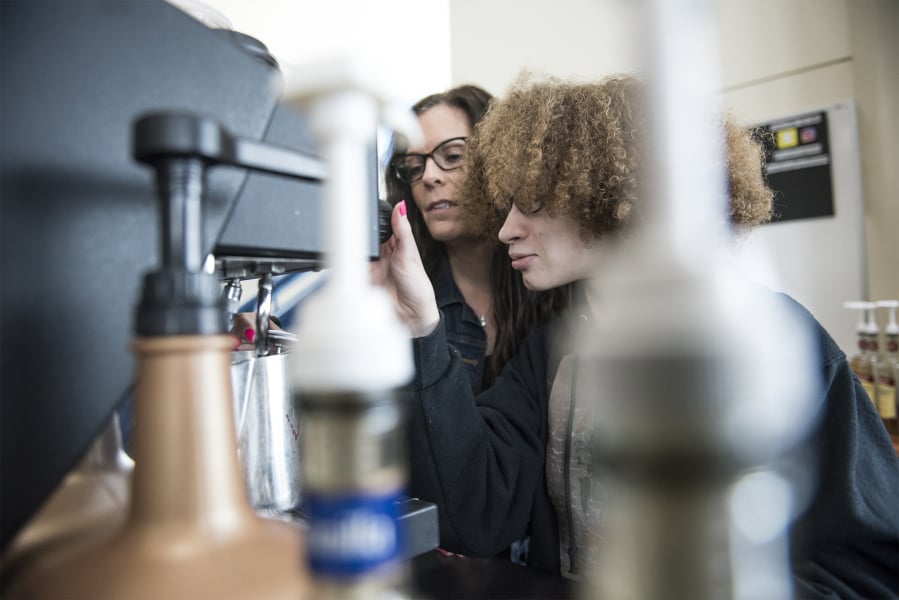BRUSH PRAIRIE — More than 40 school districts around the state ran programs and operations levies on Feb. 13, but Hockinson School District was the only one in the state where the measure didn’t pass.
In Hockinson, the replacement three-year levy failed with 52.54 percent of the 2,739 total votes coming against the levy. A three-year technology levy drew less support, with 53.94 of the vote going against the measure.
Now Hockinson officials have to start working on the budget for the 2019-2020 school year while the district prepares to put both levies before the voters again on April 23. Ballots go out the first week of April.
A school district can only run levies for election twice in a calendar year, so if these don’t pass in April, the district can’t run them again until 2020.
If the two levies pass, the district’s budget should be sound for the upcoming school year, Superintendent Sandra Yager said. If they fail, the district will have to make cuts. Yager said the cuts would range from $1.5 million to $1.8 million for the 2019-2020 school year.
“If this levy does not pass, that’s an impact on two school years,” Yager said, adding that levies are good for a calendar year, not a school year. The current levy expires at the end of this year, so a failure in April will affect the latter half of the 2019-2020 and start of the 2020-2021 school years.
The district is seeking $1.50 per $1,000 of assessed value for all three years of the replacement levy, the maximum that can requested in the new state funding model. That money would be used to keep class sizes down and to help fund special education programs, extracurricular activities and athletics.
The technology levy would start in 2020, at a cost of 45 cents per $1,000 of assessed value, followed by 40 cents per $1,000 in 2021 and 36 cents per $1,000 in 2022. The money would be used for technology refreshes, safety and security upgrades, heating and cooling improvements and building capital improvements.
If the two levies pass, the estimated combined levy rate for residents will be $1.95 per $1,000 of assessed value in 2020, $1.90 per $1,000 of assessed value in 2021 and $1.86 per $1,000 of assessed value in 2022.
In 2018, Hockinson’s levy rate was $3.43 per $1,000 of assessed value.
The McCleary legislation allows local levies no higher than $1.50 per $1,000 of assessed property value. Hockinson had expected to collect nearly $5 million in local levy dollars until the levy cap rule was put in place. The district is now anticipating collecting about $2.4 million from local levies this year.
The school board hasn’t approved a list of cuts if the levies don’t pass, but they have started to look at possible positions to cut.
A guide posted online by the district details a list of positions that could be cut to save up to $1.8 million. Those positions include two librarians, a school resource officer, three security staffers, one custodian, one nurse, one special education teacher, one special education paraeducator, 37 academic and arts coaching contracts and 76 athletics coaching contracts.
Special ed vulnerable
“It would be a big deal for us if this levy fails,” said Susan Lemos, a paraeducator with Hockinson High School’s Transition 18-21 Program, which serves students ages 18-21 who have completed the majority of their high school credit requirements but attend a continuing special education program. She is also president of the Hockinson Educational Support Professionals.
The program has six students this year along with Lemos and Angela Stanek, another paraeducator for the program. They anticipate having one student age out of the program next school year, but they expect to add another three students.
“We wouldn’t be able to give these students the real-world experience we can now,” Lemos said. “One of us couldn’t take eight students out in public alone.”
The program brings students on educational and recreational field trips, allowing them to gain work experience in the real world. They also work at the concession stands for football and volleyball games; and five days a week, they run a coffee cart at the high school. The money brought in is used for maintenance of the equipment and toward those field trips.
“We would never be able to fund things like that without the coffee cart,” Lemos said. “It’s all to give these kids an enhanced life.”
That’s part of the difficulty Yager is facing if the two levies fail again. She doesn’t want to propose any cuts that would negatively affect the classroom or increase class size, but she doesn’t want to just get rid of the district’s well-respected extracurriculars or athletics, both of which are funded with levy dollars.
The Hockinson High School football team has won two straight state titles, the high school band regularly brings home awards to its high-tech band room and the high school theater troupe just won its first award.
“For those kids, those aren’t extras,” Yager said. “It’s a part of their life. That’s your hook. For some kids, that’s education. That is what brings richness into the life of a student. I can’t imagine having a school without those things.”




